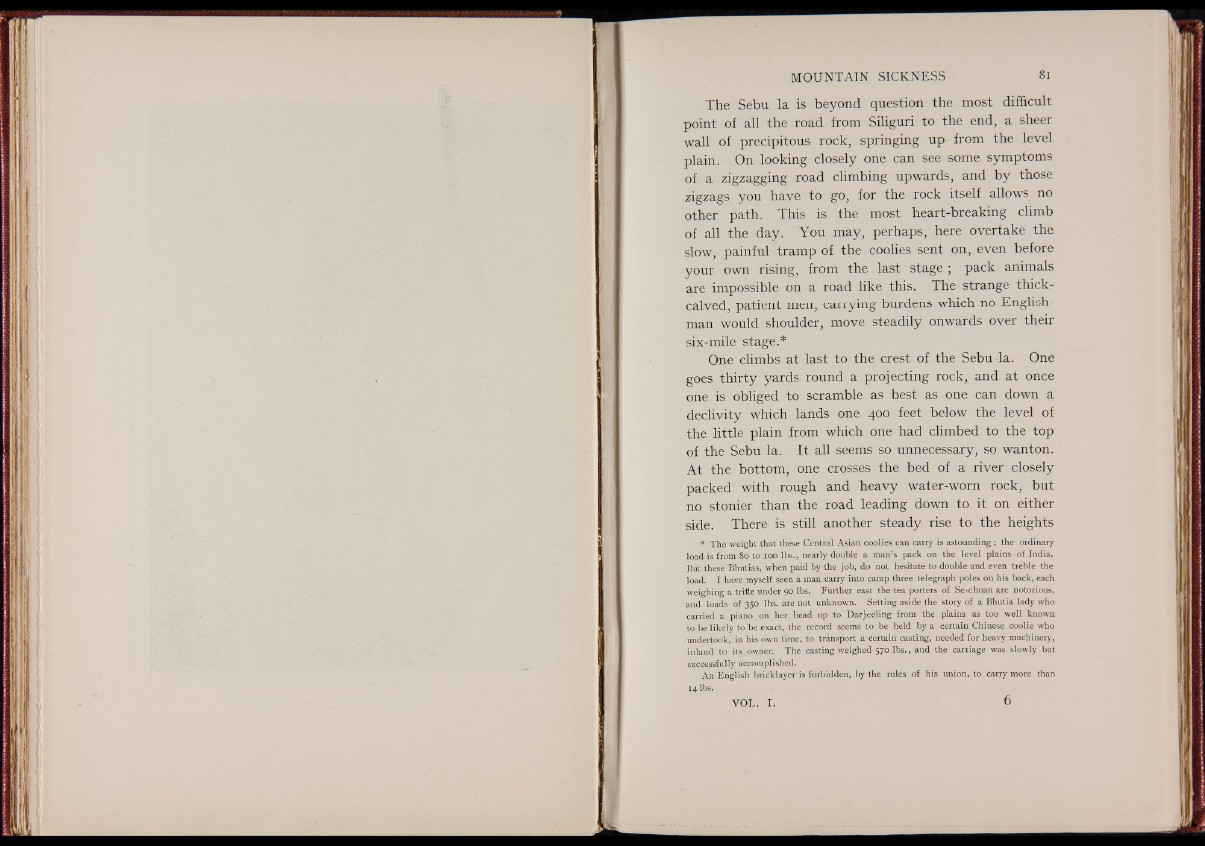
MOUNTAIN SICKNESS 81
The Sebu la is beyond question the most difficult
point of all the road from Siliguri to the end, a sheer
wall of precipitous rock, springing up from the level
plain. On looking closely one can see some symptoms
of a zigzagging road climbing upwards, and by those
zigzags you have to go, for the rock itself allows no
other path. This is the most heart-breaking climb
of all the day. You may, perhaps, here overtake the
slow, painful tramp of the coolies sent on, even before
your own rising, from the last stage ; pack animals
are impossible on a road like this. The strange thick-
calved, patient men, carrying burdens which no Englishman
would shoulder, move steadily onwards over their
six-mile stage.*
One climbs at last to the crest of the Sebu la. One
goes thirty yards round a projecting rock, and at once
one is obliged to scramble as best as one can down a
declivity which lands one 400 feet below the level of
the little plain from which one had climbed to the top
of the Sebu la. It all seems so unnecessary, so wanton.
At the bottom, one crosses the bed of a river closely
packed with rough and heavy water-worn rock, but
no stonier than the road leading down to it on either
side. There is still another steady rise to the heights
* The weight that these Central Asian coolies can carry is astounding; the ordinary
load is from 80 to 100 lbs., nearly double a man’ s pack on the level plains of India.
But these Bhutias, when paid by the job, do not hesitate to double and even treble the
load. I have myself seen a man carry into camp three telegraph poles on his back, each
weighing a trifle under 90 lbs. Further east the tea porters of Se-chuan are notorious,
and loads of 350 lbs. are not unknown. Setting aside the story of a Bhutia lady who
carried a piano on her head up to Darjeeling from the plains as too well known
to be likely to be exact, the record seems to be held by a certain Chinese coolie who
undertook, in his own time, to transport a certain casting, needed for heavy machinery,
inland to its^otyner, The casting weighed 570 lb s ., and the carriage was slowly but
successfully accomplished.
An English bricklayer is forbidden, by the rules of his union, to carry more than
14 lbs.
VOL. I. 6